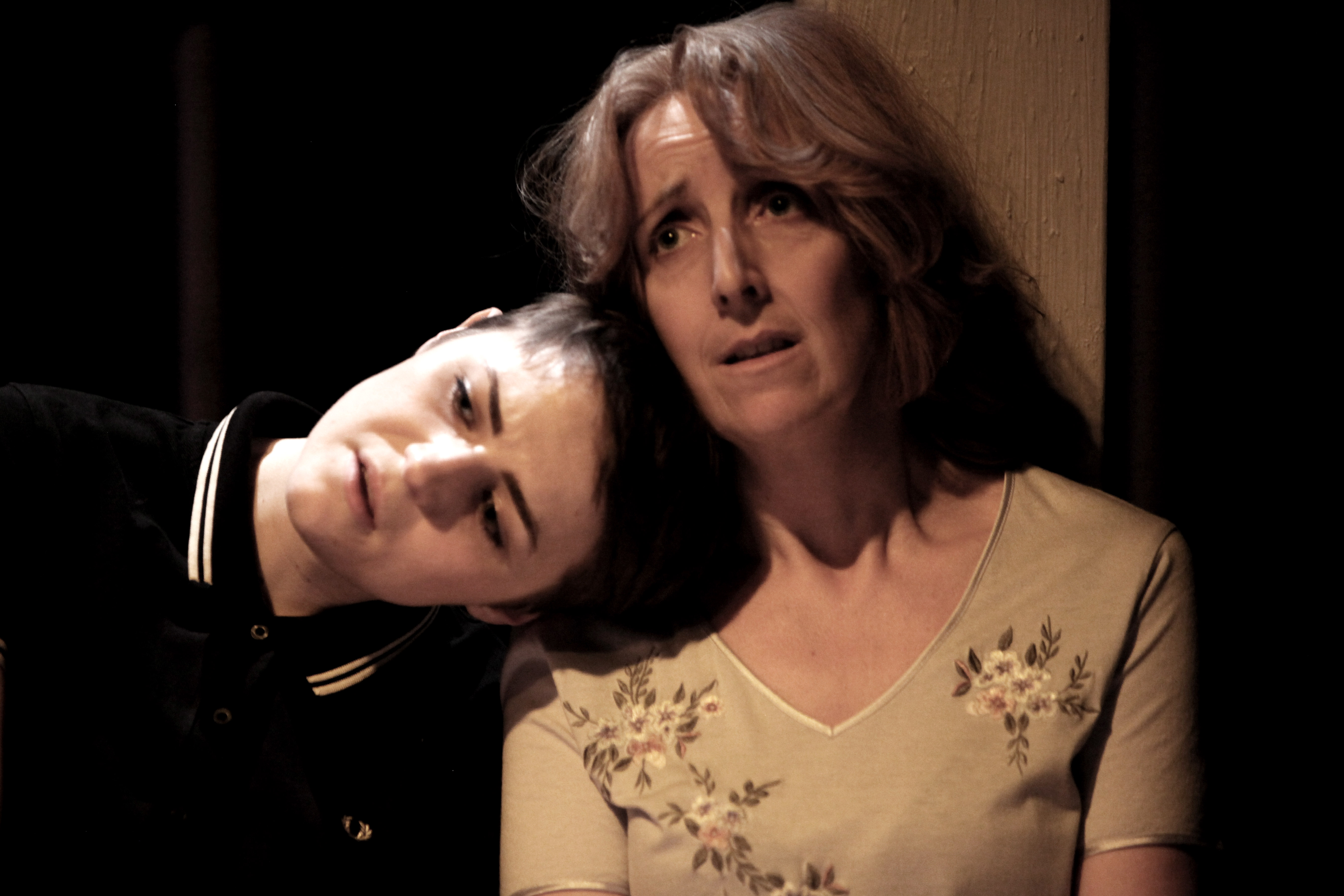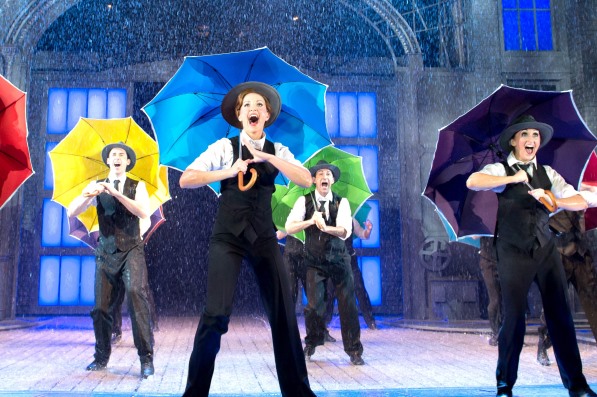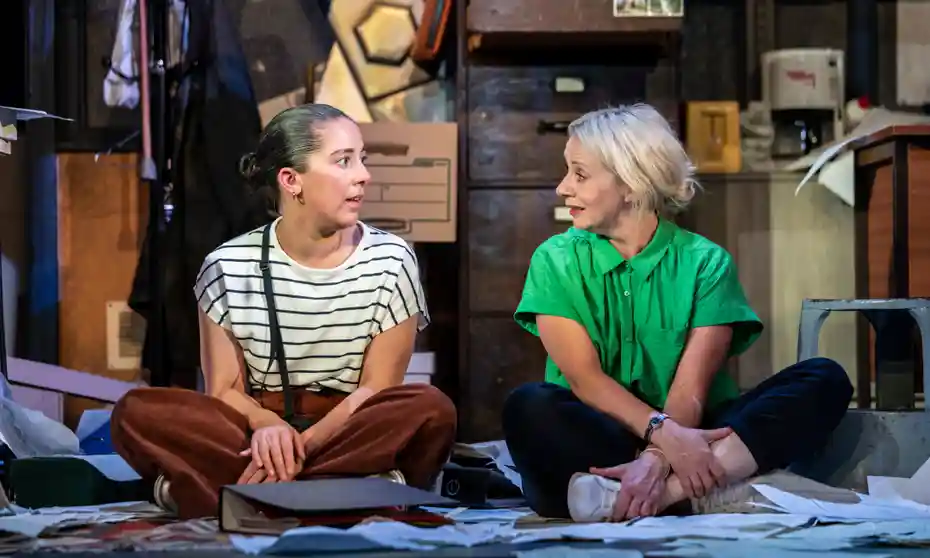There is a moment in the second half of Simon Stephens’ disquieting new play that just about sums up the atmosphere his perplexing characters have conjured up. “Your aura is a very unusual colour,” says Katie West’s troubled teenager Cathy to the distinctly odd man, John (Andrew Sheridan), she might marry. “A violent colour. It’s horrible.”
Blindsided certainly feels unusual – and at times grimly horrible. Stephens, who won many plaudits for his adaptation of The Curious Incident of the Dog in the Night-Time, might be back on home ground, but the strange way in which his two leads tell this story makes his fourth premiere for the Royal Exchange really hard work.
Cathy is a teenage mum in late 1970s Stockport and happens across John – mysterious, new to town – sizing up her mum’s house for a burglary. Somehow, she finds him alluring, despite his compulsion to tell barefaced truths at all times, and moves in with him, ignoring the misgivings of her mother, Susan (Julie Hesmondhalgh).
Naturally, John is absolutely everything he at first seemed, and Cathy, heartbroken, delivers what should be a shocking revenge. The fact that it isn’t particularly distressing is the heart of the problem with Blindsided. Right from the beginning, both West and Sheridan’s delivery is stilted, almost childish, and devoid of much emotion. They are unlikeable and almost impossible to empathise with, so when the plot does take that devastating turn, any sympathy has long since gone.
The events of the third act do at least make some sense of the decision to play the leads in such alienating fashion up to that point. Hesmondhalgh plays a grown-up Cathy, now living on the Isle of Man, with great warmth and humanity. The character has come to terms with her actions and has very much been on a ‘journey’. It’s frankly a relief after what has gone before – but it’s strange that none of that potential in Cathy is seen in the first two hours.
Anna Fleischle’s stark set, full of girders and hints of tower blocks, fits the mood – even if it does feel like watching a grim domestic drama unfold in an unlovely underpass. The flooding of the stage in the second half does nicely hammer home the sense that Cathy has built an island for herself. Her allegorical, quasi-religious ‘rebirth’, set to choral music, is probably Blindsided’s most powerful moment.
There are snippets of knowing humour amid the deadened anger – particularly when the characters are making cultural references to Thatcher or Blair. There are good ideas, too, in the questions Stephens asks about how we treat people who commit appalling crimes as teenagers, or why children continually make the same mistakes as their parents. Rebecca Callard and Jack Deam provide solid, perhaps underused, back-up as Cathy’s friend and family acquaintance respectively.
But for a playwright who thrives on realism, the conversations Stephens’ characters have don’t ring true, expect during scenes when Hesmondhalgh is on stage. And for long periods, she isn’t. Which is not to say Blindsided is dreadful. It’s just very difficult to like.


